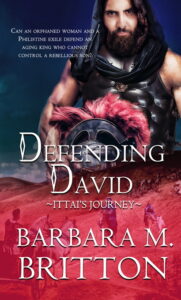By Barbara M. Britton @BarbaraMBritton
I love to create people with distinct personalities and unique skills and write about them to
produce a story. I call myself a professional writer, but to the IRS I might be a hobbyist or a
dreamer.
How do I prove to government agents that I run a business? Here are a few steps to practice in
supporting your claim to be a writing business. 
–Paper Trails and Document Dumps.
As writers, we type manuscripts into a computer, but do you have an electronic copy of all of your business expenses? I keep an electronic version of my writing expenses in the form of a Schedule C on my computer. I log in expenses as I incur them. Don’t be the person with a box of receipts come April.
I also keep a paper trail of my expenses. We have all heard horror stories of computer crashes and people losing their work. Do not lose your records, too.
What types of expenses can you take off of your taxes? There is an extensive list, but you have to ask yourself, would I be doing this activity and paying for it if I wasn’t a writer?
–Mapping a Path to Success.
I love to drive my minivan. I also love to look at maps (Yes, the foldout kind) before I leave on a
trip. Each year, I need to know where I am driving my business. That is why I have a writing
business plan.
My plan shows that I am a professional with all of my affiliations. I make the most of those
writing associations by attending classes and conferences and participating in contests. My plan
shows that I have products that I am creating and trying to sell. The business plan lists ways that
I am trying to gain notoriety for my novels and ultimately create income and profit. The
“notoriety” comes from promotion, publicity, networking, and marketing.
–Not Another Day Planner!
At the end of each year, my mailbox explodes with charities sending me day planners. I place
one by my computer and account for what I have done for my writing business each day. You
might be finishing a chapter. You might be making graphics for a book launch. You might be
writing a blog post. A daily planner lets you show that you are working on your business. It is
also a great motivator when you see a blank square.
Following the above principles will help you answer these IRS questions.
–Are you conducting your writing in a business-like manner and keeping complete and accurate
records?
–How much time and effort are you putting into your writing?
–Do you have the skills needed to be a successful business?
Writing is a blessing, but it is also a business. Stay diligent about documenting the expenses that
come with writing for God’s glory.
 Barbara M. Britton writes Christian romantic adventures for teens and adults from Bible Times to present-day USA. Barbara has a nutrition degree from Baylor University but loves to dip healthy strawberries in chocolate. You can find out more about Barbara and her books or sign up for her newsletter on her website barbarambritton.com.
Barbara M. Britton writes Christian romantic adventures for teens and adults from Bible Times to present-day USA. Barbara has a nutrition degree from Baylor University but loves to dip healthy strawberries in chocolate. You can find out more about Barbara and her books or sign up for her newsletter on her website barbarambritton.com.

Comments 12
Thanks for the helpful advice, Barbara.
You are very welcome, Priscilla. I’m glad you found it helpful. There is a lot to know in this publishing business.
Great advice! Thank you!
Hi Jody! I’m happy that you found it helpful. Thanks for being here.
Such wonderful encouragement and information that is so inspiring. I have discovered I have read 2 of your novels. Look forward to reading more.
Thank you for reading my books, Cynthia. I love the writing side of this profession, but the business side can be just as time consuming. Thanks for joining us.
Good advice!
Thank you, Carlene. I’ve learned to keep track of expenses as I go along because April can be a whirlwind.
A friend mentioned to me how she has one card just for writing/business related expenses. It makes it smoother when doing taxes since she can pull up her expenses from the summary. Banks/Credit Unions will let you have a secondary debit card these days if you ask. 🙂
Hi Amber. Yes, that makes tracking expenses easier if you have a business credit card and even a business account. You can co-mingle funds, but then excellent recordkeeping is a must. Thanks for joining us and adding your tip.
Very practical!
Thank you, Susan. I’m happy you joined us.